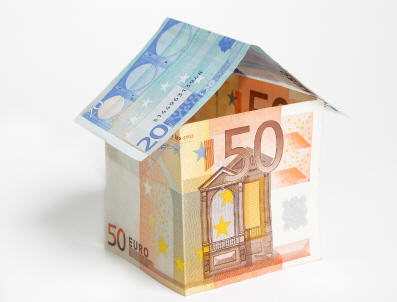NEW GOVERNMENT BUT WHAT NEXT?
Investors wait to see how the Lib-Con coalition will tackle the debt. Dollar and yen prosper as nervous investors shun the euro.
The pound almost made it to a year high but backed off at the crucial moment. Despite falling back slightly it still holds two and a half cents to the good on the week.
 Following the previous week's general election political worries about sterling were replaced by... political worries. There was nervousness when it took five days to form a government and uncertainty afterwards. From financial markets' point of view the Liberal-Conservative coalition is probably the least worst alternative under the circumstances, given that a single-party government is out of the question. Dave and Nick are giving every impression that they are dedicated to the job of reducing the country's debt to something more akin to 'normal' levels. They have mentioned spending cuts - including ministerial salaries - and efficiency savings amounting to £6 billion this year. There is reason to be optimistic that the first coalition for 65 years will stick to its mission and do the job the nation needs.
Following the previous week's general election political worries about sterling were replaced by... political worries. There was nervousness when it took five days to form a government and uncertainty afterwards. From financial markets' point of view the Liberal-Conservative coalition is probably the least worst alternative under the circumstances, given that a single-party government is out of the question. Dave and Nick are giving every impression that they are dedicated to the job of reducing the country's debt to something more akin to 'normal' levels. They have mentioned spending cuts - including ministerial salaries - and efficiency savings amounting to £6 billion this year. There is reason to be optimistic that the first coalition for 65 years will stick to its mission and do the job the nation needs.
But investors need more than vague promises before they will be able fully to renew their faith in sterling, as will the credit ratings agencies. A quick-fix spending review and the Queen's Speech next week will give an outline as to how the Camelegg government intends to prioritise its tasks; it will be the best part of a month beyond that before the really serious stuff comes out in the Proper budget (as opposed to the flimsy pre-election one that nobody really believed). Investors and ratings agencies will not be satisfied unless George Osborne's budget speech is dripping with the blood of quangos and diversity outreach counsellors. They are prepared to be patient: after all, it would be silly to bounce a new government into precipitate decisions before it has searched the cupboards of Downing Street and Whitehall for financial skeletons. But patience and enthusiasm are not quite the same thing. Sterling will have to wait for its renaissance.
In the meantime, the economy is bumping slowly up the same hill it had been tackling before the election. House prices, according to the RICS, the DCLG and Rightmove, are rising at a sustainable pace. Industrial and manufacturing production in the UK grew by 2.0% and 3.3% in the year to March. NIESR (The National Institute for Economic and Social Research, an apolitical body) estimates that the economy grew by +0.5% in the year to April. Dole claims went down by another 27k in April. The bad news is still there as well. Britain's trade deficit went up by a fifth in March as a result of increased imports. The weak currency is not doing its job of balancing trade.
Financial markets initially had faith in the European Union's €750 billion financial stability fund, intended to protect all EU countries from the problems from which Greece is suffering at the moment. As has become usual, it did not take long for that support to evaporate. A classic case of 'too much, too late' saw Germany step up to the plate with a real offer of genuine money but the damage to confidence had already been done. It is no longer a matter of possible Greek default. Portugal and Spain are tarred, fairly or not, with the same brush and the concern now is that the Greek tragedy could mushroom into another global financial crisis. With that in mind, investors favoured the dollar and the Yen as the safest places to park their money until the problem blows over.
There is real concern that Brussels has screwed this one up, egged on by German voters who see no reason why they should pay for the gold-plated pensions of Greek civil servants. As they look at it now, the cosmic scale of the stability fund is almost an endorsement of their assumption that problem is a huge one. The European Central Bank has (probably reluctantly) agreed to buy Greek government bonds which could turn out to be worthless if Greece defaults on its debt. At least for the time being, the euro has blown away any prospect of deposing the US dollar as the world's reserve currency of choice.
Sterling is in limbo until the new prime minister unveils his plans to sort out the debt. It is being dragged down by the ailing euro (as is the Swiss franc, for slightly different reasons) against the US dollar and the Japanese yen unless and until investors rethink their doomsday scenario for southern Europe. Against the euro, however, it is not looking too shabby. Buyers of the euro should hedge half their requirement.
Comments:
| There have been no comments submitted about this article yet. |